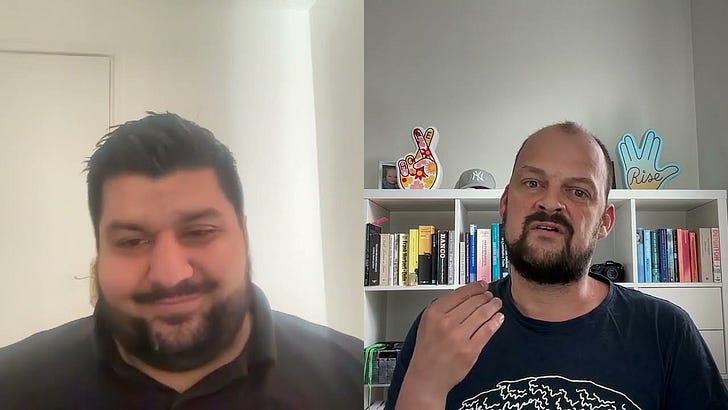If you read a lot of psychiatric epidemiology, or like me you have a background in psychology and are curious about the causes of psychiatric outcomes, you will likely have come across the work of Amir Sariaslan. Amir Sariaslan is a Senior Research Fellow at the Department of Psychiatry, University of Oxford and an NIHR Oxford Health Biomedical Research Centre Training Fellow, and basically known for a flavour of observational epidemiology that takes control for unmeasurable confounding very seriously. Based on National Scandinavian registers, and using within person and within family analyses his work tries to isolate causal effects slightly better. While these designs wont always or strictly speaking give you causal estimates as they're still hindered by confounding, they are frequently more than enough to put to bed spurious, or confounded observational results.
I had a long conversation with Amir, about his contributions to work that revealed a previous observational study, linking Epidurals during child birth are to autism in kids, was detrimentally to be confounded. Ideally we would all take confounding as seriously as Amir does, or at least consider the types of fixed effects in family or in person models we discussed in the episode. What I learned talking to him is that more recently he and his collaborators are also thinking about, and starting to, do the more qualitative follow up you really need in psychiatric epidemiology. His work might reveal that placement in out-of-home care isn’t related to better outcomes, and certain types of institutional care are potentially worse than others, why though? He ends up pointing me to a Swedish dissertation by Sten-Ake Stenberg in 1990 that supposedly does this type of full mixed methods work on evictions, where you begin quantitatively at a population level but then doo a deep dive qualitative follow up. But like a typical 1990 sociology dissertation it’s in Swedish, and you cant even download the PDF outside Sweden, which means I am now obsessed and have to get it! (send it to me Swedes, its here). then at the end of the episode we got into discussing the p-factor, and I have opinions (spoiler, i dont like it…) and I found out I am going to have to record a p-factor episode…
Anyway, if you have some time, and you want to nerd out about good psychiatric epidemiology, listen to our whole conversation linked below!




This looks great - is it available on other platforms, ie Spotify/apple?